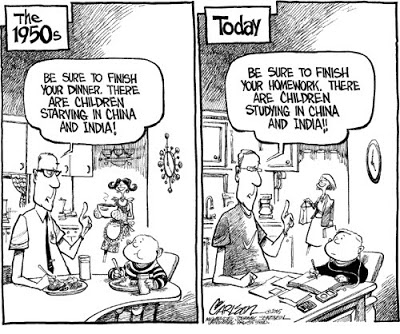In my International Political Analysis class at INSEAD this week, we analyzed the shifting of power in the world, specifically the rise of China and India. This being a business school, the focus of the conversation was on economic sources of power. While a strong economy and large GDP are important for maintaining power in this globalized world, political power is not necessarily determined by economic factors.
Towards the end of our class discussion, I finally brought up the issue of nuclear weapons. I think that my generation often forgets the political power provided by nuclear weapons because we did not live through the Cold War. However, we do live in a time where the world order is determined by nuclear arms. The P5 of the UN Security Council are the five official nuclear weapons states (United States, United Kingdom, France, China, and Russia) recognized by the Nonproliferation Treaty, to which almost every single country is a signatory. Other than that, only three other countries have nuclear weapons and there is significant international effort spent to prevent more countries from having nuclear arms.
Therefore, despite the evolving economic powers, I don't see political power changing unless nuclear weapons become obsolete or the P5 do actually disarm. However, there is a chance of more countries joining the "nuclear club" and perhaps diluting the power of the P5.
For a deeper discussion, read Nuclear Weapons as the Currency of Power.


 RSS Feed
RSS Feed

